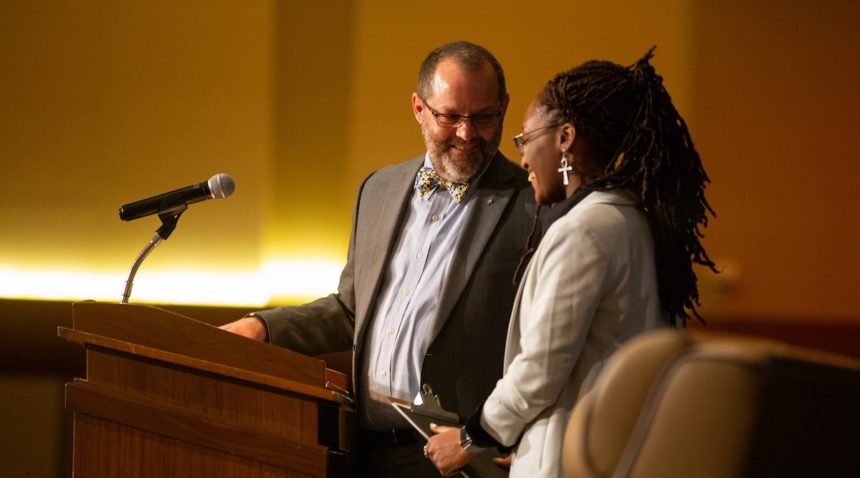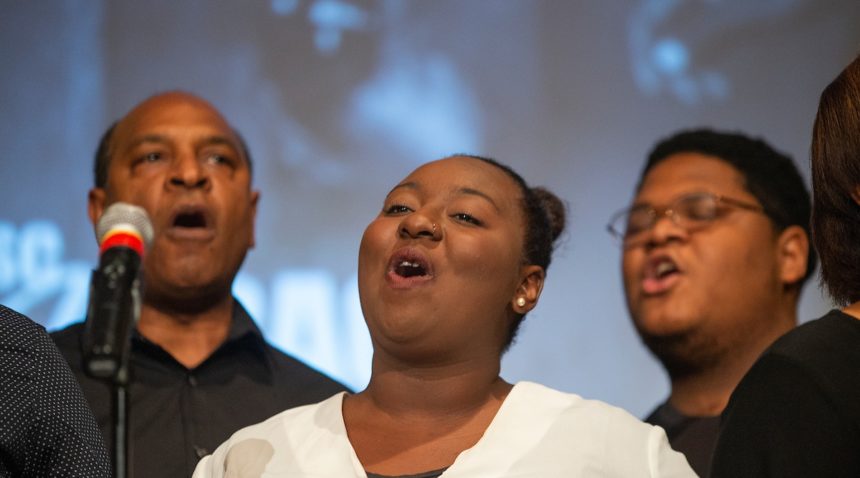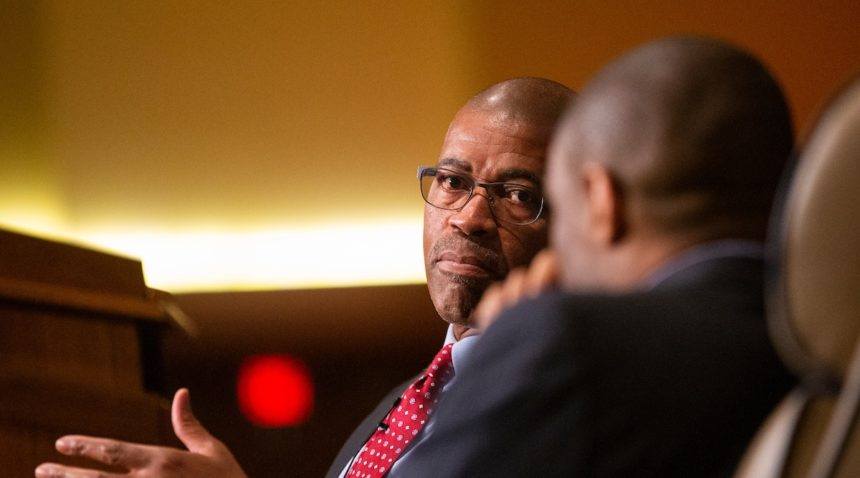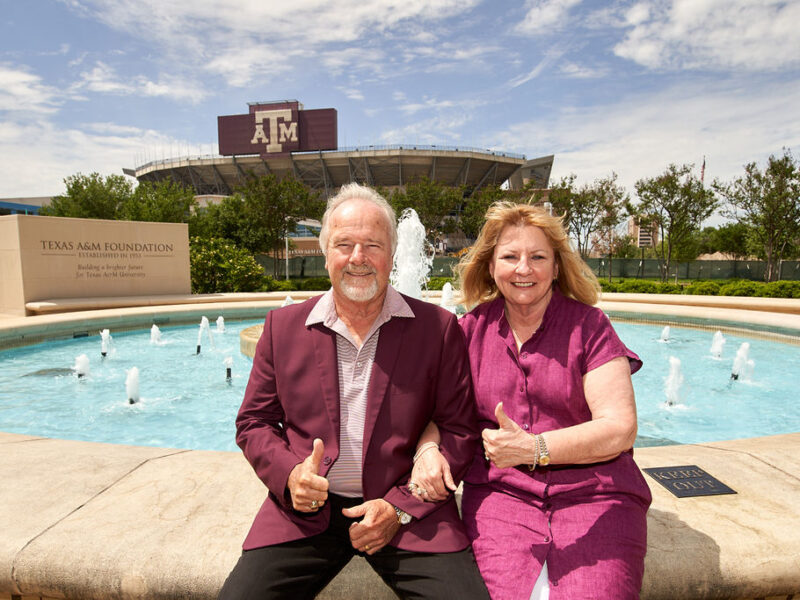Celebrating MLK’s Dream




Members of the campus community reflected on Dr. Martin Luther King, Jr.’s legacy of fostering social equity Tuesday at the 13th annual breakfast honoring the late civil rights leader.
Tiara Kinnebrew ’21, the Memorial Student Center Carter G. Woodson Black Awareness Committee’s MLK Breakfast director, told the hundreds of people who attended the event that she hoped the program would highlight the relevance of King’s legacy. The MSC WBAC provides educational programming to enhance the understanding of the contributions of people of African descent and their impact on society.
“I desire today to be a catalyst if you have become complacent and forgotten how far America has come, but yet how far we still need to go,” Kinnebrew said. “Dr. King, the civil rights movement and its leaders should still inspire us toward action for the betterment of our great nation and the world.”
The theme of this year’s breakfast was “Black Faces in White Spaces.” Through a spoken word performance, Samuel Austin Evans, Class of 2020, shared his experience as a black student navigating life in predominantly white spaces.
Michael Benedik, vice provost and chief international officer, noted that just over 65 years ago, the U.S. Supreme Court’s landmark ruling in Brown v. Board of Education served as noticed to leaders across the country that education would no longer divide the nation, but “unite as a common cause, opening doors of opportunity and building bridges across college campuses.”
The later passage of the Civil Rights Act also affirmed the promise of education and equality would no longer be limited to select members of society. Speaking on behalf of President Michael K. Young, who was unable to attend the event due to another commitment, Benedik acknowledged the sweeping changes and milestones that occurred at Texas A&M as a result, including the first black student to earn a doctorate from the university in 1967 and the election of the first black student body president in 1976.
“In Dr. King’s eyes, education not only helped people increase their knowledge, but also helped build their character, and it is this commitment to character that he espoused that remains at the heart of our university’s legacy of service and of leadership, which helps Aggies have a profound influence on our campus, across the nation and around the world,” Benedik said.
The MLK Breakfast serves as a reminder to Texas A&M’s commitment to ensuring “the doors of opportunity remain open to future generations,” Benedik said.
“We believe Texas A&M can be a better university with every passing year,” he said.
Keynote speaker Marc Lamont Hill, currently a host at HuffPost Live and BET News, said King to him represents “the best of American tradition.” In a conversation with Reuben A. May, a professor in the Department of Sociology, Hill discussed the importance of engaging in conversation with people who have “radically different” viewpoints, the representation of African Americans at institutions beyond the demographic level, and more.
“For me, Dr. King is perhaps the greatest American ever produced, and I have to say, by the way, that it’s impressive and wonderful and beautiful that years after his death… we’re still honoring him and we’re still committed to his legacy,” Hill said.
Tuesday also marked the debut of the Everybody Gaines exhibit, as well as a student art exhibit and an Aggie Frame of Mind exhibit.
Media contact: Caitlin Clark, 979-458-8412, caitlinclark@tamu.edu.



